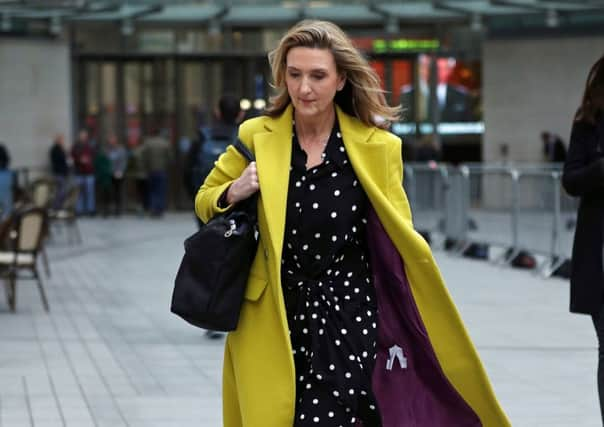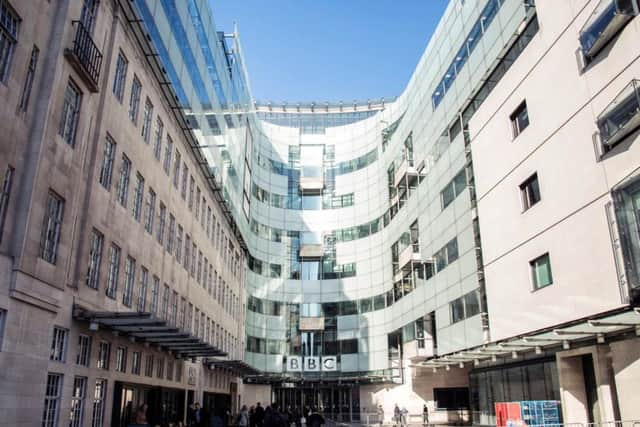BBC can’t expect to charge a licence fee for online clickbait – David Behrens


There was no doubt to whom Lord Hall, the outgoing Director-General, was referring when he attacked his own journalists this week for contributing to what he said was a toxic discourse in which the aim was to “catch out” politicians.
The blackballing of Today had been the work of Dominic Cummings, special advisor to Boris Johnson, and on Wednesday the PM was forced to deny in the Commons that the corporation was now the “mortal enemy” of the Conservative Party.
Advertisement
Hide AdAdvertisement
Hide AdHe was right to do so. There is as much enmity for the BBC, if not more, from the ranks of Labour, and especially the office of its departing leader. The nation’s state broadcaster is about as popular right now as Northern rail – and that’s before you factor in the insult of making over-75s pay for their TV licence and the disingenuity of paying female staff less than men.


Indeed, at a climactic staff meeting this week to unveil £80m of cuts to the news division, the BBC appeared to be at war with itself, with the presenter Victoria Derbyshire, whose morning TV show is among those for the chop, openly haranguing her boss.
The figure of £80m is significant, because it points to the excessive volume of news the BBC generates and its disproportionate domination of the national debate. How many other news organisations have an entire budget of £80m, let alone that much slack?
Advertisement
Hide AdAdvertisement
Hide AdBut it is the controversy surrounding the licence fee – not just for over-75s but for everyone – that will ultimately force it to recut its coat to suit its cloth. It is a method of funding that is dead in the water, and the fatal shot was fired at that staff meeting.
It wasn’t Ms Derbyshire who pulled the trigger but the woman at whom she was directing her ire – Fran Unsworth, director of news and current affairs.
The BBC was, Ms Unsworth said, spending too much on “traditional linear broadcasting” – in other words, TV and radio programmes – and not enough on digital.
Advertisement
Hide AdAdvertisement
Hide AdBut what on earth is the licence fee for, if not TV and radio programmes? It is literally a tax on owning a TV set. Viewers can hardly be expected to pay it if the money is going on content for websites they can access for nothing.
The BBC has never had a mandate to populate the internet, except with its TV and radio programmes. Its appropriation of the new medium has been unnecessary, anticompetitive and, crucially, unlicensed.
Last year, the regulator Ofcom launched a review of the prevalence of “clickbait” on the BBC website. It concluded that the corporation would have to do more to stand out – or risk losing its reputation as a trusted voice.
In fairness, other publishers are as bad or worse. The internet has become the wild west of newsgathering, in which press releases and tweets from people no-one has heard of are passed off as fact. But, of course, the commercial sector is spending its own money, not ours. The BBC should have risen above this, not joined the fray.
Advertisement
Hide AdAdvertisement
Hide AdThe timing of Lord Hall’s exit is expedient. It was he who negotiated the disastrous deal in 2015 that saw it taking on the cost of providing services to the over-75s. He had been appointed as someone who could steady the ship as it lurched from crisis to crisis. He is now the captain abandoning the sinking wreck.
The £80m of cuts this week are the tip of the iceberg on to which he has steered the corporation, and which threatens to break it up. It is striking how few people right now – even those with vested interests – are putting their heads above the parapet to argue that the licence fee should remain its life raft. You’d have thought that with no Ministers to catch out, the Today programme would be filled with such voices.
None of this means that the BBC will not remain our national broadcaster, and continue to draw money from the public purse. But its days of levying a tax just for itself will almost certainly end with its current Royal charter, in seven years’ time. Perhaps sooner, if Dominic Cummings has his way.
In the meantime, may I suggest that to wring as much entertainment value as possible from its remaining resources, it scraps more of the programmes and televises the staff meetings instead.